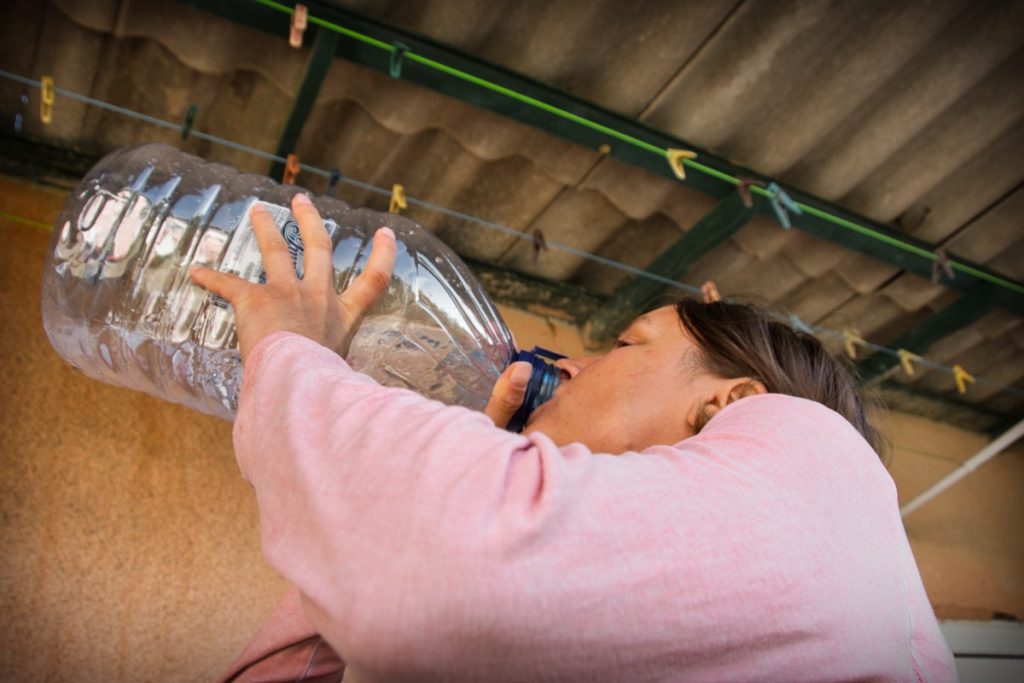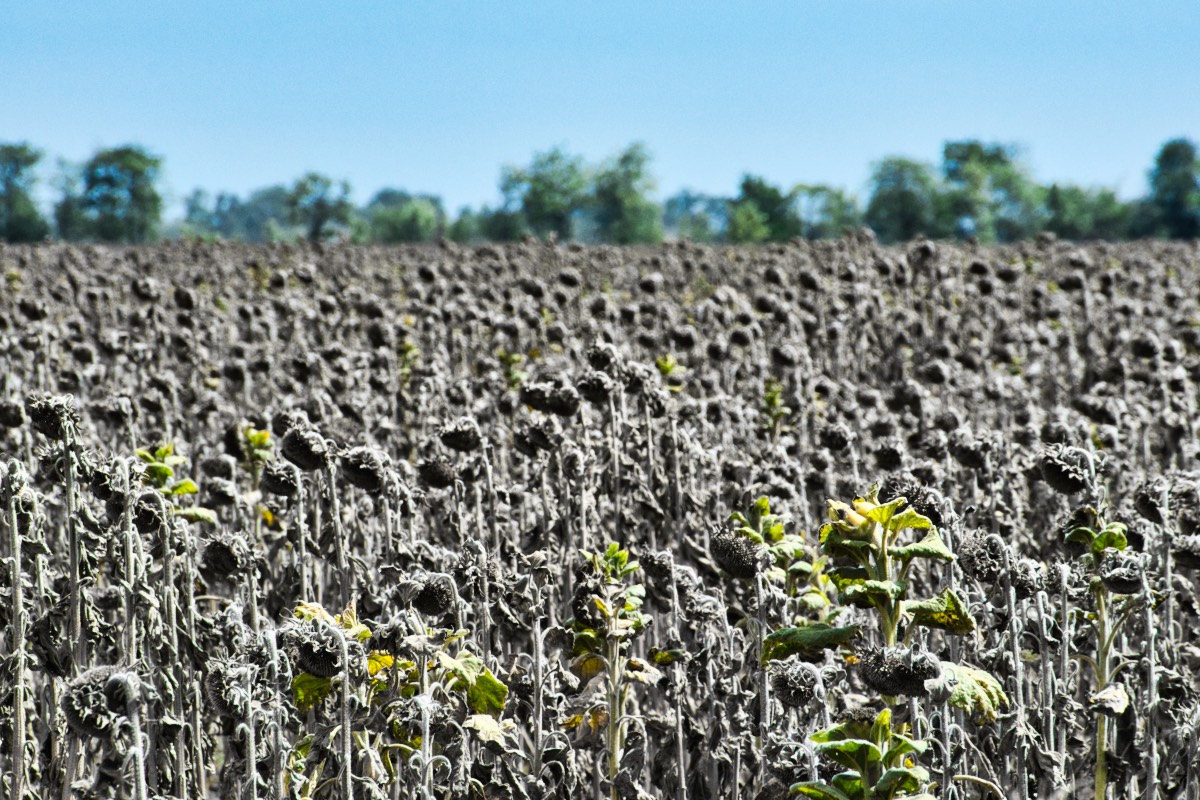UPDATED October 25th, 2019 — this is a dispatch from my cycle tour of Ukraine and surroundings this past Summer with my partner Nastia, an open project on an Autumn/Winter hiatus — check out the project page more information, and sign up for my newsletter if you would like to be notified when it resumes 🙂
When

I like what came out of that process, and i decided to share it as an encore of sorts — i hope you’ll also enjoy, and find it . . . refreshing 😉
“ ‘But I have a penny.’ — ‘Water costs two pennies. (…) However, you can enjoy free access to any movie ever made, or pornography, or a simulation of a deceased family member for you to interact with as you die from dehydration. Your social networks will be automatically updated with the news of your death.’ ”
— Jaron Lanier, in Who Owns the Future?
From Spring to Tap
This time the photos are not organized chronologically or grouped by district — they’re loosely categorized by source. As a second counterpoint to my previous couple of lengthy posts, i tried to keep the text here to a minimum — just a handful of independent floating stories outlining the process.
SPRINGS
. . . down the path and through the gate, you’ll find the generous spring flowing downstairs. That was a sad, sad day — the apple so purely gifted by a child the evening before radiated in contrast, flashing hope for a bright future — that’s why i kept the fruit in my handlebar bag for so many days before eating it — i enjoyed remembering the sweet kid’s spontaneous gesture every time i had to set the apple aside when reaching for something inside the bag . . .
—
WELLS
. . . the first well in the region was great — bam! It appeared after 10 or 15 endless kilometers under smoldering sun along a trippy, straight, dry, dusty dirt road that felt like the purgatory. Besides cool water and a shade in which to enjoy it, we were further redeemed by a meal of corn on the cob, and enough raspberries for another meal later on that day (when we added cottage cheese and honey to them) — courtesy of some Ol‘a, whose smile might as well have been Mother Mary’s at the gates of heaven. Ol’a reminded me of my grandmother . . .
—
PEOPLE
. . . our water collection was always mediated by locals. A few times, that meant handing out our empty bottles, watching them being taken out of our sight, then having them reappear full a minute or two later. In those cases, the secondary source was obscured by their kindness — more than once, we were offered cold water from their fridge . . .
—

BOTTLED WATER
. . . i’m not particularly eager to pay for water, and Nastia doesn’t like to buy single-use plastic bottles. What can i say, i feel entitled to water — despite Grandpa’s lessons, i still subscribe to the notion that drinking water is (or at least should be) abundant — someone (else) just has to dig a deep enough hole on the ground and take good care of it before our arrival, right? People in Petrivka had done that, and didn’t mind sharing the result of their labor with us, but the water was heavy on sulfur — good for the skin, not as much for the uninitiated bowels. While most people eventually adapt to it without negative long-term consequences, i’d already had a fair share of relentless two-way purging from sulfurated water earlier on the tour, and didn’t want to risk — Nastia didn’t like the taste — we gave in . . .
—
CISTERNS
. . . someone warned Nastia and i of the “Gypsies” a couple of villages down the road — déjà vu. I’m still not above being influenced by someone else’s prejudice, but the alarmist was alone even among his friends, who told us not to worry and just ignore him — we didn’t change our route. The irony — that wound up being where we next refilled our water bottles — from a cistern, which someone had not only to build and maintain but also keep full — although i don’t feel like we stole the water, i’m not sure how we paid for it either, at least not in that particular occasion . . .
—
TAPS
. . . on what we thought would have been our way out of Odesa, we took water from a curious setting i hadn’t experienced before. I have no idea how this water comes to be, except that it, too, must cost somebody money — the treatment, the delivery, the salaries of the mysterious employees watching TV (or listening to the radio) the whole day behind the panels and curtains — the electricity to keep the TV (or radio) on. More than a month after that false start, that’s still where i collect my drinking water. Note to self: go there just before it opens one morning, and learn more about it . . .
—
MISCELLANEOUS
. . . on occasion, taking photos of yet another spring, well, cistern, or tap felt dull. There were also a couple of times when the water source didn’t want to be documented. One strategy to cope with the numbing boredom or annoying restriction was to turn the camera away from the water, and see what else might be going on . . .
. . . and that’s a bit of how it went.
Now i did not attempt to account for every molecule of water we were given — the photos above refer essentially to the circumstances two or three times a day when we filled/topped up one or more of our water bottles for consumption on the road ahead. This leaves me without much of an opportunity to acknowledge equally generous hosts such as Viorica and her family, or the Old Believers.
Whether or not we should pay, or even say thanks for water in Ukraine (something Nastia kept chastising me for doing), i appreciate every sip of water people shared with us — especially where drinking water supplies are not seamlessly built into the baseline infrastructure <3
This will be the last In a
This does not at all signal a break from the blog and newsletter though — on the contrary! Stay tuned — plenty is going on that i want to explore and give life.
___
Featured photo: sunflowers’ last stand under this year’s heat and drought (somewhere between Vyshneve and Zhovtey-Yar (Odesa Region, Tatarbunary district)
Sign up for my newsletter and receive long-term travel
inspiration & advice delivered weekly, straight into your inbox






































Eu acho incrível essa coisa de que em todos os lugares por onde vocês passaram, tem fontes de água para se abastecerem! Gratuitamente! Água não se vende! Ou melhor, não se deveria vender…
Muitos beijos! Mamãe
Será? Quando uma coisa é de graça pra todo mundo, ninguém é dono — quem se responsabiliza? Acho que o problema acontece quando a água é de graça pra uns e não pra outros, e aí quem tem água de graça não se responsabiliza, e falta pra quem tem que pagar, que acaba tendo que pagar mais caro. E se água não fosse de graça pra ninguém, mas todos tivéssemos os meios com os quais pagar pelo que precisamos?
I love the 8th photo in the “springs”! And all the photos with Gagauz grannies are amazing! The grannies were so jolly!
Looking though the photos was nostalgic! The article was a nice light read
But a few spelling lost in translation bother me: BolGrad, like Bulgaria because it’s originally a Bulgarian town and I think it’s better to spell Olia (rather than Ol’a), and 1 last thing – Teplitsa or even Teplitz (as it’s original German name).
Glad you enjoyed — which photo? There are only two springs — you meant the 8th well?
I’m sorry the spellings bother you. You’ve told me to drop the ‘ before, and i will think about that. About Bolgrad vs. Bolhrad, etc. — i have to make a choice when i write the names in English — the best option seems to be to write them all transliterated from Ukrainian. I hope that makes you slightly less bothered.
I’m reading a few books about Ukrainian history, and the funniest thing about them is that the authors always spend one or two pages, in the beginning, explaining how they transliterated Ukrainian or Russian names, and the exceptions, and the exceptions to the exceptions, and the apologies for not managing to be consistent, historically accurate, sensitive to local preferences, linguistically coherent, and spiritually satisfied. Of course, i’m exaggerating a bit — just a bit 😉